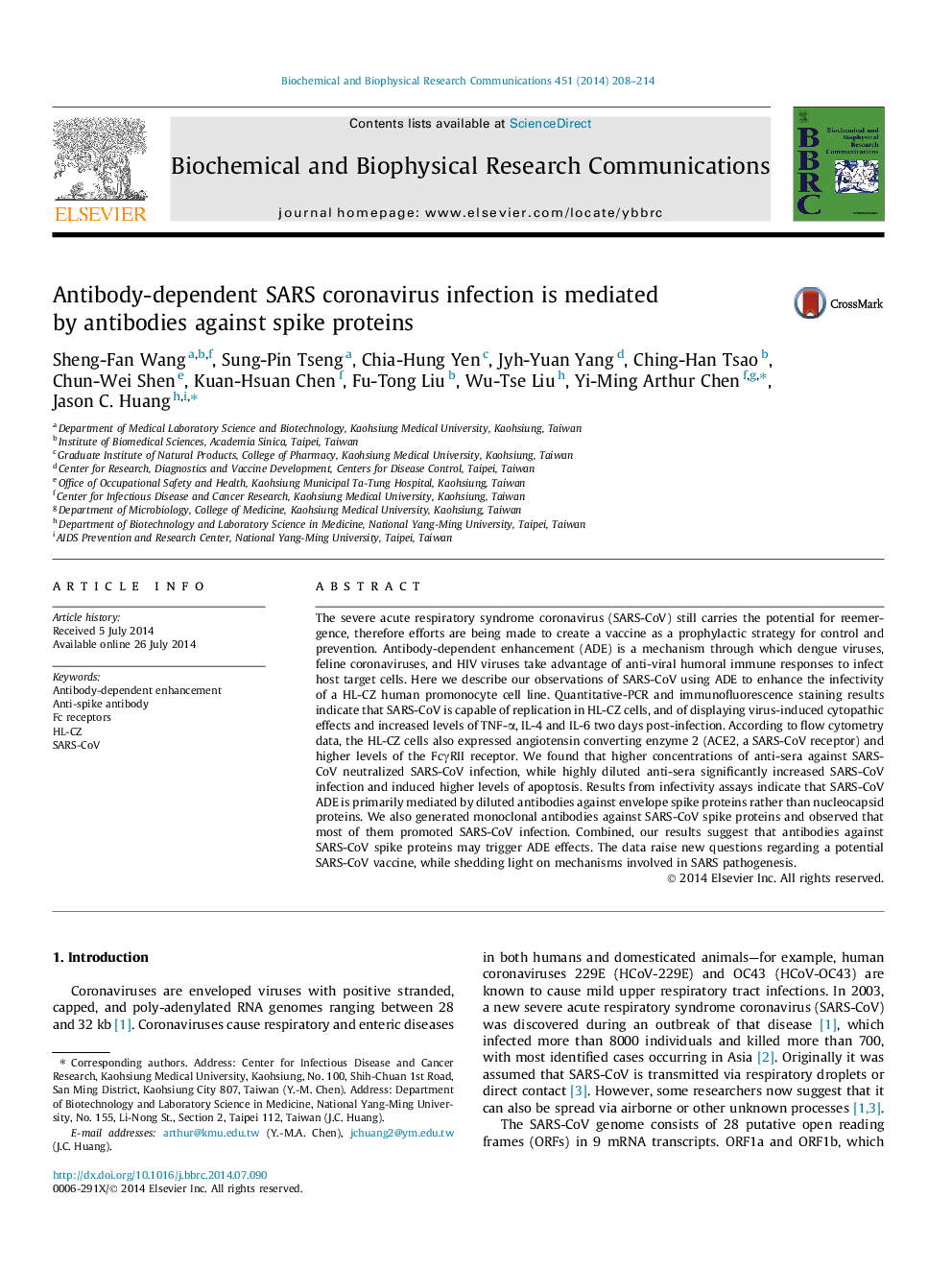| Article ID | Journal | Published Year | Pages | File Type |
|---|---|---|---|---|
| 10754085 | Biochemical and Biophysical Research Communications | 2014 | 7 Pages |
Abstract
The severe acute respiratory syndrome coronavirus (SARS-CoV) still carries the potential for reemergence, therefore efforts are being made to create a vaccine as a prophylactic strategy for control and prevention. Antibody-dependent enhancement (ADE) is a mechanism through which dengue viruses, feline coronaviruses, and HIV viruses take advantage of anti-viral humoral immune responses to infect host target cells. Here we describe our observations of SARS-CoV using ADE to enhance the infectivity of a HL-CZ human promonocyte cell line. Quantitative-PCR and immunofluorescence staining results indicate that SARS-CoV is capable of replication in HL-CZ cells, and of displaying virus-induced cytopathic effects and increased levels of TNF-α, IL-4 and IL-6 two days post-infection. According to flow cytometry data, the HL-CZ cells also expressed angiotensin converting enzyme 2 (ACE2, a SARS-CoV receptor) and higher levels of the FcγRII receptor. We found that higher concentrations of anti-sera against SARS-CoV neutralized SARS-CoV infection, while highly diluted anti-sera significantly increased SARS-CoV infection and induced higher levels of apoptosis. Results from infectivity assays indicate that SARS-CoV ADE is primarily mediated by diluted antibodies against envelope spike proteins rather than nucleocapsid proteins. We also generated monoclonal antibodies against SARS-CoV spike proteins and observed that most of them promoted SARS-CoV infection. Combined, our results suggest that antibodies against SARS-CoV spike proteins may trigger ADE effects. The data raise new questions regarding a potential SARS-CoV vaccine, while shedding light on mechanisms involved in SARS pathogenesis.
Related Topics
Life Sciences
Biochemistry, Genetics and Molecular Biology
Biochemistry
Authors
Sheng-Fan Wang, Sung-Pin Tseng, Chia-Hung Yen, Jyh-Yuan Yang, Ching-Han Tsao, Chun-Wei Shen, Kuan-Hsuan Chen, Fu-Tong Liu, Wu-Tse Liu, Yi-Ming Arthur Chen, Jason C. Huang,
